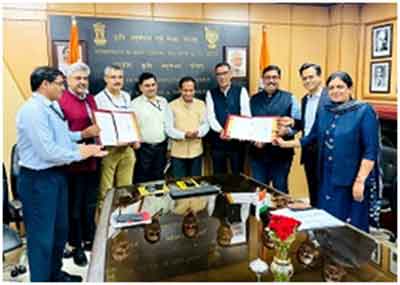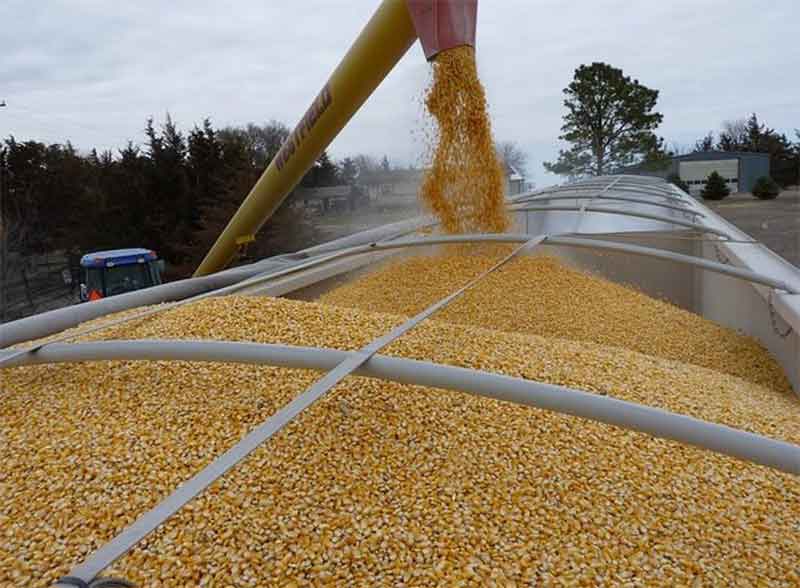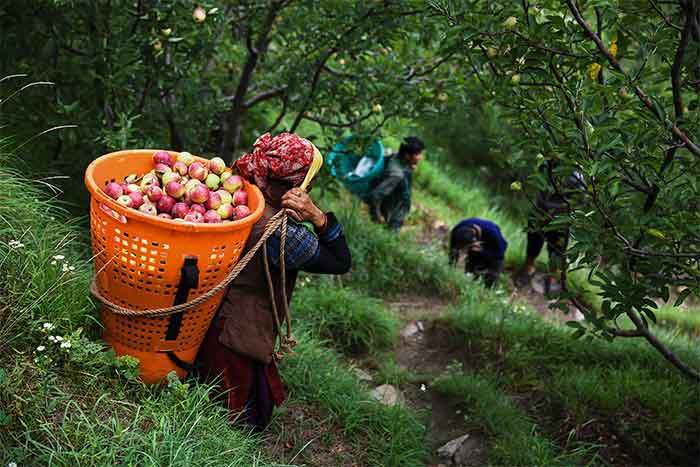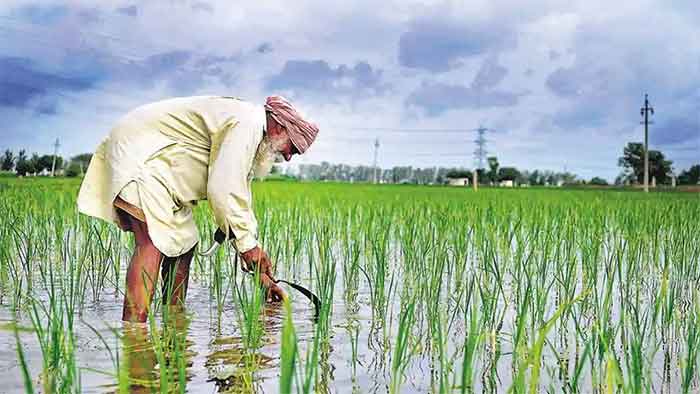
Indian Council of Agricultural Research (ICAR) and Bayer multinational company has signed a MoU on 1st September 2023. The collaboration aims to create innovative solutions for crops, crop protection, weed management, and mechanization that are both resource-efficient and resilient to climate change. The partnership says that they are concentrating on developing regenerative agricultural models, with a primary focus on rice and horticulture production. They want to address the issue of nutritional security by tailoring sustainable ecosystem solutions to meet the specific needs of farmers. Dual partnership is made for sustainability programs by providing farmers with essential agricultural inputs and advisory services in a holistic systems approach. Smallholder farmers will receive agronomic advisory support, and the partnership aims to develop carbon credit markets.
ICAR Director General Himanshu Pathak stated that the joint research has been planned to advance precision agriculture practices, including the utilization of drones. Krishi Vigyan Kendras (farm science centres) will play a crucial role in expanding outreach by leveraging technological know-how and expertise through technology transfer and capacity-building programs. Bayer will provide support to Krishi Vigyan Kendra (KVK) agri-entrepreneurs through awareness and education programs, ensuring input availability, and offering mechanization solutions in defined agricultural clusters. The partnership aims to empower smallholder farmers by helping them achieve higher yields, adopt water-efficient practices, and facilitate better market linkages, thereby providing them with opportunities to earn additional incentives. Over all models will be designed to ensure economic success while promoting sustainability.
“The Council has further extended its collaboration by signing a Memorandum of Understanding (MoU) with the e-commerce industry leader Amazon. This partnership is dedicated to providing guidance to farmers who are part of Amazon’s ‘Kisan store’ initiative. The primary aim is to impart scientific knowledge on crop cultivation, enabling farmers to achieve maximum yield and income. The guideline, expected to be released within the next two months, will provide further clarity and insights into this endeavour.’
Now, it is the critical time for us to examine the history of Bayer Crop Science, especially since its recent merger with Monsanto. As of September 2023, Monsanto has reached settlement agreements in nearly 100,000 Roundup lawsuits, amounting to approximately $11 billion in payouts. Moreover, the legal battles continue with over 26,000 to 30,000 active Roundup lawsuits still pending. Over time, scientific concerns have arisen even by the ICAR regarding the safety of glyphosate which is owned by Monsanto. Studies have suggested potential harm to human health and environmental damage, with the International Agency for Research on Cancer classifying glyphosate as possibly carcinogenic to humans. In 2018, Bayer acquired Roundup along with the associated lawsuits connecting it to cancer. Interestingly, the same Bayer is actively engaged in efforts to introduce GM seeds into the Indian market, a matter currently under review by the Supreme Court.
The present status of Indian agriculture needs to be analysed and validated with current statistics to match the vision of the agreement. Firstly, if we closely look up the data given by ISRO; India is witnessing rapid Land degradation of nearly 30% which accounts to almost 96.40 million Ha. Out of which Karnataka alone contributes 69, 51,000 Ha (nearly 36.24%). Fate of Jharkhand, Delhi, Rajasthan, Gujarat and Goa is highly miserable who have lost more than 50% of their cultivable lands. The main reason is the loss of Biodiversity due to Monocropping. Secondly, India is the world’s leading rice exporter, accounting for more than 40% of the global rice trade, as well as the second largest producer after China. Thirdly, India produces almost 350.87 million tons of Horticulture produce (2022-23), which shows 40% excess than countries requirement. Fourthly, India is in very bad condition as far as oilseed production is concerned. Nearly 60% of the edible oilseeds is getting imported (2022-23). Pulse production oscillates every year due to frequent drought and floods. With all this set and done, India is still undernourished. More than one-third of children are malnourished, the reasons remain questionable. If we go deeper into the issue of malnourishment; major factors will be the inequalities and disparities, political and bureaucracy structures for the wish of corporations, and the major bulk of the food occupied by chemically grown hybrid rice and wheat spread across the nation through PDS.
Now with this data and understandings, it is high time to analyse that why ICAR has signed an agreement with Bayer like corporates who has blacklisted already from many of the countries, have impounded millions of dollars penalty, to work in Agriculture sector especially on Rice and Horticulture sector which is already in excess production. How the Bayer like company shall work on Regenerative science which is purely a domain of Biodiversity, ecology and environment? How can they give climate adaptive solutions to regenerative agriculture as it is the factor of water, air, soil, microbes, animal world and so on….? How can they improvise the economic status of marginal farmers who are suffering from frequent drought and floods: who are not in a position to get back even their production cost?
It may appear questionable that ICAR is facilitating the introduction of Bayer – GM seeds by using metaphors such as sustainable agriculture, climate resilience, nutrition security, small farmer empowerment, carbon credit markets, and capacity building and so on through regional KVKs who are already been victimised to certain extent with deficit of funds for research. Deep concern arises that KVKs in the coming days shall be used as the puppets of the corporate companies to sell their goods and services.
The multinational corporations, aside from their involvement with GM seeds, share other common interests as well. These interests encompass marketing various products and technologies, such as drones, newly formulated chemicals, Artificial Intelligence (AI) tools, machinery, and equipment, among others through FPOs and likewise communities through their last market chain KVKs.
This convergence of their efforts places all aspects of agricultural inputs, including the market itself, under the control of these multinational corporate entities. In the foreseeable future, India’s food system could fall within their grasp, presenting a potentially perilous and detrimental situation. Under the guise of technological advancements and cutting-edge science, there is a risk of causing irreversible damage to the ecology and the environment. There is also the possibility of new virus strains emerging, akin to the challenges posed by Covid, potentially leading to unknown diseases affecting both humans and animals. This, in turn, could result in a substantial economic burden on healthcare investments, as has been observed in many countries, including their own home nation, the United States.
The overall motto of these corporate giants is to expand their business worldwide and generate profits wherever there is a crisis.
So, In light of the aforementioned concerns, we need to bring these important concerns to the notice of public, legislative and administrative authorities at every state to expeditiously address this issue and intervene to further validate by setting up a committee to revisit the pros and cons of this agreement as being agriculture the issue of States as per the constitution of India.
Finally, it is crucial to emphasize that “Indian farmers have a profound understanding of regenerative farming, and their expertise should be celebrated and preserved. This will be the due duty of any Government and the institutions.”
Manjunath H , Founder, Gandhian School of Natural farming. Email: [email protected]














































